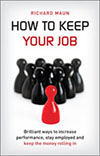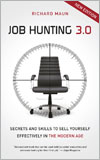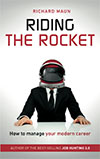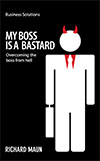better business blog
Tips and stories to add value to you and your organisation

The Structure Of Time
What is time? Well there’s space-time, which I don’t pretend to know much about. Then there’s microwave time, which means that despite our food being cooked almost instantly, we still chafe that it’s taking too long!
We used to have drive-to-work time, which meant allowing exactly 4 minutes 30 seconds less for our journey than we needed to and getting agitated at every red light and slow driver.
How times have changed, even if time hasn’t.
We don’t even carry time around with us in the same way. The fob watch was replaced with the wrist version. This was upgraded to a digital one and then a smart watch. And then a smart phone.
For me a watch is just that. It’s not a speak, or a swipe, or a tap. Mine tells the time and that’s it.
Humans have always been fascinated with time. Imagine going back in time to Stone Henge and showing the druids a digital watch. They’d probably froth at the mouth, realising that dragging stones from Wales was not going to catch on a big way. They’d be a bit cross and then after some debate they’d sacrifice us to their gods. Maybe.
We have a basic need to notice time and structure our day accordingly. It seems that most societies have set meal times, although the English like to confuse things by having tea time, which can mean either tea and sandwiches or dinner. We don’t eat sandwiches at dinner time, as that would be silly. We know what we mean.
In terms of human interaction Eric Berne, founding father of Transactional Analysis, identified that we have a basic hunger for structure. We divide up our day to meet these hungers and it’s worth pondering them. Here they are:
1. Withdrawal. We are alone with our thoughts, even if there are other people in the room.
2. Ritual. We great others in friendly and safe ways. Hello, how are you? I’m fine. How are you? I’m fine. We know the drill and it’s convenient to know what’s expected of us.
3. Pastiming. Oh how we love to natter, share stories, moan about the weather and have easy chit chat. This is pastiming and it’s a lovely way to engage with people.
4. Activity. This tends to mean work, but can also be applied to fun things, sports and hobbies. We spend a lot of time here each day, mostly working.
5. Psychological Games. The intent behind a game is good, in that we want to be noticed, but things go awry and instead of getting a hug, we get cross and get shouted at instead. We still get noticed, but in an unhelpful way. Humans prefer to take bad stuff rather than no stuff. Avoiding games is a jolly good thing and requires self awareness and honesty.
6. Intimacy. Of course this can mean a tender hug and it also refers to those conversations when we speak our mind and are met with authentic acknowledgement. Both parties share and talk at a deeper level. These conversations are good for the soul.
How much time we spend in any stage is up to us and our needs. However, too much activity and too little pastiming can blunt our edge. We need to pause and have friendly chats; we need to put down the mouse, stop clicking for a while and phone a friend for a natter.
If we spend too much time in withdrawal we may feel isolated. We can notice if we are missing human contact and do something about it. I think WhatsApp is great here as we can connect quickly and safely with a few friends and be eased back into a world of gentle contact.
Our lives have all changed at the moment and so many of our usual structures have been ruined. Our days are different, whether we are working from home, on furlough, or still making our way to work.
It’s important to pay attention to structure and to ask ourselves if we are spending too much time in any 1 of the 6 stages. If we are, then we can take steps to remedy this.
Instead of over working, we can allow time for chat. Team leaders would be wise to pay attention to this and many do.
If we are feeling isolated and struggling to be productive in any way (work, or play) then we can phone a friend, find a fun quiz to take part in, or seek more professional support. Counselling can be done online and it’s great to connect with someone who will listen to us.
An hour a week can be all that’s needed for us to feel better in ourselves. We are worth an hour and we are all important to someone.
So, this week we can take a fresh look at how we structure our days and we can tweak things to make sure we are getting all of our needs met.
And if you know someone who would benefit from some counselling then you’re welcome to invite them to contact me. Or you can Google the world and see who is out there.
Keep safe!
Next week: Mental Health Matters
e-publishing
Click icon for details


recent posts
browse archive
books
Click cover to view details on Amazon

How to Keep Your Job
Brilliant ways to increase performance, stay employed and keep the money rolling in
Published 2011 Marshall Cavendish
208pp

Job Hunting 3.0
Secrets and skills to sell yourself effectively in the Modern Age
Published 2010 Marshall Cavendish
260pp

 RSS
RSS


